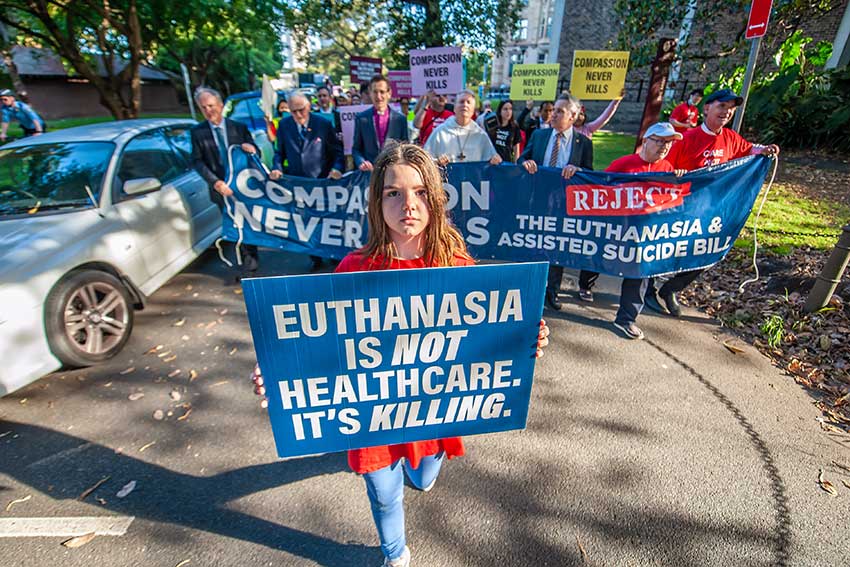
A parliamentary inquiry into the Australian Capital Territory’s proposed voluntary assisted dying laws has been criticised for a “serious omission” in making no recommendations for conscientious objection provisions in its majority report.
The select committee on the draft bill released its majority report with 27 recommendations to the ACT’s Legislative Assembly on 29 February.
None of them relate to an individual’s right to conscientious objection to taking part in the proposed dying laws or an organisation’s right to refuse medically-assisted suicide from taking place on its premises.
Instead, dissenting members of the committee, including Liberal MPs Ed Cocks and Leanne Castley, were permitted to express their views in support of conscientious objection protections in an appendix to the main report.
Dr Patrick McArdle, Chancellor of the Catholic Archdiocese of Canberra and Goulburn, said faith-based aged care providers in particular were at risk of losing their ability to operate if the bill was made law in its current form.
“The serious omission from our point of view was any consensus on the question of conscientious objection and the capacity of health care providers to have an unequivocal institutional advocacy for life,” Dr McArdle said.
“Under this proposed bill no health care provider can state, ‘We stand for life at all times and in all situations’ without being guilty of a criminal offence. One wonders what contingency the ACT Government has to provide for the additional health, aged care and welfare provisions if they force faith-based providers out of these areas of acute and urgent need?”
The report refers to conscientious objection as a “considerably personal issue related to one’s own morals, ethics, and values” and adds that the committee “does not seek to make any specific recommendations in relation to this matter.”
Joshua Rowe, Australian Christian Lobby State Director for NSW/ACT, said in a statement that reference was “paradoxical.”
“The committee recognises a balancing of rights in this context,” he said.
“However, it is evident that the right to individual autonomy in choosing to end one’s life is considered more important than one’s right to conscience and, indeed, the sanctity of life.”
Mark Green, Calvary National Director Mission and People, was satisfied that the inquiry had taken its representations in writing and at a public hearing into account.
“Calvary operates in all Australian states where VAD is already legislated and we are confident that we will continue to be able to provide appropriate end-of-life care in the ACT in accordance with our mission,” he said.
McArdle also welcomed the inquiry’s “otherwise thorough” approach to investigating the bill, which has prompted a redrafting of key amendments, delaying debate on the bill until around the middle of 2024.
It is hoped it will yield clarity around the vague terms “last stages of their life” and “advanced”, in relation to people who would quality for access to assisted dying.
Unlike other Australian jurisdictions, the current draft bill would not require an expected time frame of a person’s death in eligibility criteria.
